''Комплекс вправ та завдань з використанням пісенного матеріалу на уроках англійської мови в середніх та старших класах''
КОМПЛЕКС ВПРАВ ТА ЗАВДАНЬ З ВИКОРИСТАННЯМ ПІСЕННОГО МАТЕРІАЛУ НА УРОКАХ АНГЛІЙСЬКОЇ МОВИ В СЕРЕДНІХ ТА СТАРШИХ КЛАСАХ
Аналіз наукової та методичної літератури з проблем розробки системи вправ і завдань з використанням пісенного матеріалу, відповідає системі вправ Н.Д. Гез і Н.І. Гальскова. З певними змінами та доповненнями вона лягла в основу пропонованої класифікації вправ на основі пісенного матеріалу, призначених для розвитку граматичних, лексичних і фонетичних навичок учнів. Відразу зазначу, що різноманіття видів вправ не обмежується обсягом даного виду роботи, але може стати в майбутньому відмінною основою для написання цілого НМК, проте в додатках все ж наведу деякі приклади.
Граматика. Додаток 1.
• Вправи на впізнавання та диференціацію граматичного явища.
• Вправи на трансформацію.
• Питання-відповідні вправи.
• Репродуктивні вправи.
• Перекладні вправи.
Лексика. Додаток 2.
• Вправи на диференціацію та ідентифікацію.
• Вправи на імітацію з перетворення. Відповіді на поставлені питання за заданим зразком.
• Вправи на розвиток словотвірної та контекстуальної здогадки.
• Вправи для навчання прогнозуванню: підбір слів, що поєднуються з виділеними словами; доповнити семантичне поле до слова.
• Вправи на розширення і скорочення речень (діалогічних єдностей, текстів).
• Вправи на еквівалентні заміни: на синоніми чи антоніми.
• Вправи на рецепцію: виявлення наголосів, звуків у прослуханій пісні.
• Вправи на відтворення, видозміну мовного матеріалу.
• Вправи на еквівалентні заміни: на синоніми чи антоніми.
Фонетика
• Вправи на рецепцію: виявлення наголосів, звуків у прослуханій пісні.
• Вправи на відтворення, видозміну мовного матеріалу.
Таким чином, виходячи з представлених типів завдань можна зробити висновок, що на прикладі пісенного матеріалу можливий розвиток всіх мовних навичок учнів.
Мовленнєві вправи спрямовані на розвиток мовленнєвих знань, умінь, необхідних для вирішення певної комунікативної задачі і сприяють розвитку мовленнєвої компетенції. Мовленнєві вправи можуть бути одномовними, двомовними, усними, письмовими, механічними та творчими.
Аудіювання. Додаток 3.
Передтекстові вправи.
- Вправи на розвиток мовного слуху, короткочасної і словесно-логічної памʼяті, словотвірної та контекстуальної здогадки.
- Вправи на визначення значення інтернаціональних слів по контексту і їх звуковій формі; на складання припущень по темі змісту пісні, по заголовку і даними ключовими словами; на визначення значення незнайомих слів через їх дефініції іноземною мовою.
Текстові та післятекстові вправи.
- Вправи на частково кероване навчання аудіювання: заповнити пропуски в тексті пісні; співвідносити текст пісні з картинками; переказ змісту пісні; вибір відповідних заголовків до куплетів пісні.
- Вправи на некероване навчання аудіювання: прослухати пісню і придумати до неї картинки; скласти план пісні; виконати пісню.
- Вправи для розвиток вмінь смислової переробки та фіксації інформації: скласти короткий переказ пісні, виділити основні тези; обговорити проблемні питання за тематикою пісні організація дискусії за виявленими проблемами (порівняння різних точок зору); розіграти інтервʼю з автором / виконавцем і персонажем пісні.
Говоріння. Додаток 4.
- Вправи на навчання діалогічного мовлення, драматизації пісні; на аргументацію стверджувальних/негативних відповідей; проведення дискусії на основі проблематики пісні.
- Вправи на навчання монологічного мовлення: складання ситуації чи оповідання за ключовими словами до пісні; опис картинки чи серії картинок, пов’язаних з тематикою пісні; пояснення змісту чи заголовка; висловити власну думку про зміст пісні чи характер виконання пісні.
- Вправи на репродукцію: відтворення тексту пісні за ключовими словами; письмово обґрунтоване прогнозування змісту пісні по заголовкам куплетів і назві; складання тексту за допомогою ланцюжка логічно організованих речень; скласти письмово питання до пісні;
- Вправи на продукцію: описати картинки за тематикою пісні: написати твір по заданій у пісні проблематики; скласти інший текст на мелодію пісні.
- Вправи на швидке пошукове читання: одночасне прочитання тексту пісні та її прослуховування; заповнення пропусків у пісні; дати текст з помилками смислового характеру і виправити їх при прослуховуванні.
- Вправи з відпрацювання ознайомлювального читання: швидке прочитання тексту пісні і вибір найбільш підходящої назви; на основі прочитаного тексту пісні уявити її короткий зміст.
- Вправи з відпрацювання вивчаючого читання: відповіді на питання за змістом тексту пісні; розподіл фактів, що містяться в тексті, за ступенем важливості; переклад тексту пісні (або її фрагментів) на рідну мову.
Даному посібник містить комплекс вправ для навчання аудіювання учнів старших класів середньої школи на основі окремих текстів. Вибір цих текстів пояснюється тим. що всі вони є учбово-автентичними матеріалами і відповідають всім критеріям та параметрам автентичності, а саме відповідають віковим особливостям учнів, критеріям граматичної та функціональної автентичності. При роботі з цими матеріалами пропоную також орієнтовні плани-конспекти уроків, в яких інтегровані методичні аспекти даного посібника. Додаток 5.
ДОДАТКИ
Додаток 1
The first is to find all the verbs in Present Simple Tense, the second group in Present Continuous Tense, the third - in Past Simple Tense
«Lucky» (by Britney Spears):
|
This is a story about a girl named Lucky*... |
And the world is spinning, and she keeps on winning |
|
Early morning, she wakes up |
But tell me what happens when it stops? |
|
Knock, knock, knock on the door |
they go.
|
|
It's time for makeup,
|
"Isn't she lovely, this Hollywood girl?" |
|
Perfect smile |
And they say |
|
It's you they're all waiting for |
[“Best actress, and the winner is Lucky!" |
|
they go, |
"I'm Roger Johnson for Pop News standing outside the arena waiting for Lucky” |
|
Isnʼt she lovely, |
“Oh my god here she comes!"] |
|
This Hollywood girl?" |
Isn't she lovely, this Hollywood girl? |
|
And they say |
She is so lucky, but why does she cry? |
|
"She’s so lucky, she's a star |
If there is nothing missing in her life |
|
But she cry, cry, cries in her lonely heart, thinking' |
Why do tears come at night?
|
|
'If there's nothing missing m my life |
and they say,
|
|
Then why do these tears come at night? " |
She's so lucky, she's a star
|
|
Lost in an image, in a dream |
But she cry, cry, cries in her lonely heart, thinkin'
|
|
But there's no one there to wake her up |
If there's nothing missing in my life |
|
|
Then why do these tears come at night? |
Define what part of speech
are the following words:
ever, lately, forever, never, really. Justify your choice.
«Live forever» (by Oasis)
|
Maybe I don't really want to know |
Maybe I don't really want to know |
|
How your garden grows |
How your garden grows |
|
Coz I just want to fly |
Coz I just want to fly |
|
Lately did you ever feel the pain |
Lately did you ever feel the pain |
|
In the morning rain |
In the morning rain |
|
As it soaks it to the bone |
As it soaks it to the bone |
|
Maybe I just want to fly |
Maybe I will never be |
|
Want to live and don't want to die |
All the things that I want to be |
|
Maybe I just want to breath |
But now is not the time to cry |
|
Maybe I just don’t believe |
Nowrs the time to find out why |
|
Maybe you're the same as me |
I think you're the same as me |
|
We see things they'll never see |
We see things they'll never see |
|
You and I are gonna live forever |
You and I are gonna live forever |
Додаток 2
«What a Wonderful World» (by Lois Armstrong)
Order the pictures as Louis Armstrong sings about them:

- ________ b)_________ c) _________

d)________ e)___________ f) ________ g) _________
«What a Wonderful World» (by Louis Armstrong)
Choose the appropriate word:
I see trees/this of green, red roses too
l see them bloom for me and you
And I think to myself/yourself what a wonderful world.
I see skies/eyes of blue and clouds of white
The bright blessed day/may, the dark sacred night
And I think to myself what a wonderful world.
The colours of the rainbow/eyebrow so pretty in the sky
Are also on the faces/races of people going by
I see friends/ends shaking hands saying how do you do
They're really saying I love you.
I hear babies/ladies crying, I watch them grow
They’ll learn/turn much more than I’ll never know
And I think to myself what a wonderful world
Yes I think to myself what a wonderful world.
Додаток 3
Listen to the song and say which pictures fit to this song better:
 «Lucky» (by Britney Spears):
«Lucky» (by Britney Spears):


 Listen to this song again anti fill in the gaps using the words «Lucky» (by Britney Spears):
Listen to this song again anti fill in the gaps using the words «Lucky» (by Britney Spears):
Hollywood, morning, girl (2 times), stops, dream, smile, star, world, life (2 times)
Match the words on the left with the definitions on the right
|
а) to travel on or across an area of water in boat or ship |
|
b) a ship, especially a military one, that can stay under water |
|
3. Aboard |
c) on or onto a ship, plane or train |
|
4. Band |
d) in or to a lower position than smth or directly under smth |
|
|
e) a group of musician |
Yellow Submarine (by The Beatles):
This is the story about a _____ named Lucky.
Early _____
She wakes up
Knock, knock, knock on the___
It's time for makeup
Perfect _____
It's you they're all waiting for
Isn't she lovely
This_____ girl
And they say.
She's so Lucky
She’s a______
But she cry cry cries in her lonely heart
Thinking, if there's nothing missing in my ___
Then why do these tears come at night?
Lost in an image, in a ______
But there's no one there to wake her up
And the _____ is spinning and she keeps on winning
But tell me, what happens when it _____
Isn't she lovely?
This Hollywood _____
Sheʼs so lucky
But why does she cry?
If there is nothing missing in her ____
Why do tears come at night?
Додаток 4
«A woman in Love» by B.Streisand.
|
Answer the questions: |
Life is a moment in space. |
We planned it all at the start |
|
|
1. |
What do you think the song is going to be about? Can you prove it?
|
When the dreams are gone, |
that you and I |
|
|
Itʼs a lonelier place. |
would live in each other's hearts. |
|
|
|
We kiss the morning goodbye, but down inside
|
We may be oceans away. |
|
|
2. |
Try to translate these expressions. Use a dictionary, if necessary:
|
you know we never know why. |
You feel my love and 1 hear what you say. |
|
|
The road is narrow and long |
No truth is ever a lie. |
|
|
|
when eyes meet eyes |
1 stumble and fall |
|
|
3. |
To be oceans away |
and the feeling is strong.. 1 turn away from the wall. |
but 1 give you it all... 1 am a woman in love |
|
4. |
The dreams are gone
|
1 stumble and fall but 1 give you it ail...
|
and I'll do anything |
|
5. |
1 stumble and fall |
1 am a woman in love |
to get you into my world and hold you within. |
|
6. |
It's a right that 1 defend |
and I'll do anything |
It's a light that I defend |
|
|
to get you into my world |
over and over again. |
|
|
7. |
What the song is about? Does this topic relevant to you? |
and hold you within. |
What do I do? |
|
|
It's a right that 1 defend |
1 am a woman in love |
|
|
8. |
Share your ideas with classmates using as many expressions from the text as possible. |
over and over again. What do 1 do? |
and I'm talking to you. Do you know how I feel? |
|
|
With you eternally mine |
What a woman can do. |
|
|
|
in dreams there is |
It's a right that I defend |
|
|
|
no measure of time. |
over and over again. |
|
Describe, how the girl on the photo look like!
«A woman in love» by B.Streisand.

Додаток 5а
Орієнтовні плани конспекти уроків з англійської мови з використанням автентичного пісенного матеріалу
Урок у 6 класі. (І семестр)
Тема . Дозвілля. Світ наших хобі.
Topic. Leisure time. The World of Hobbies.
Level – A-1 elementary
Мета: узагальнити лексико-граматичний матеріал за темою «The world of Hobbies»; формувати лексичну та мовленнєву компетенцію за допомогою пісенного матеріалу; розвивати мовну здогадку, формувати вміння узагальнювати, фонематичний слух учнів та вміння співпрацювати у групі; удосконалювати навички монологічного мовлення за темою «Hobby»; удосконалювати навички аудіювання з пошуком необхідної інформації.
Aim of the lesson: to summarize lexical and grammatical materials of the topic «The World of Hobbies»; to form the linguistic competence with the help of songs; to improve the contextual guess, to teach how to sum the material up, to improve the contextual guess, to improve listening comprehension skills with the appropriate information search.
Тип уроку: комбінований, розвитку навичок діалогічного і монологічного мовлення та аудіювання.
Type of the lesson: combined, with the dialogue-monologue speech and listening comprehension skills development.
Очікувані результати: наприкінці уроку учні вміють правильно вживати лексичні одиниці з даної теми; вирізняти потрібну інформацію при аудіюванні з даної теми; спілкуватися в межах обраної тематики на основі прослуханого тексту.
Словами True/False, картки з текстами, слайди за різними фрагментами уроку.
Expected results: At the end of the lesson pupils know how to use lexical units of the proposed topic correctly; to identify the necessary information while listening the proposed topic materials; to communicate on the proposed topic based on the text heard.
Обладнання: мультимедійний супровід до уроку, добірка фотографій, картки.
Equipment of the lesson: multimedia, pictures, and photos, True/False cards, cards with texts, slides with different parts of the lesson.
План уроку
І. ОРГАНІЗАЦІЙНИЙ МОМЕНТ
1. Привітання. Пред’явлення теми та мети уроку.
2. Фонетична зарядка. Мовленнєва зарядка.
II. ОСНОВНА ЧАСТИНА УРОКУ
- Активізація ЛО з теми «The world of Hobbies».
2. Розвиток навичок аудіювання з узагальненим розумінням прослуханого і виділенням необхідної інформації.
3. Розвиток навичок монологічного мовлення з теми.
4. Розвиток навичок діалогічного мовлення з теми.
5. Розвиток навичок читання теми.
ІІІ. ПІДСУМОК
ІV. ДОМАШНЄ ЗАВДАННЯ
ЛІТЕРАТУРА
Plan of the lesson
I. INTRODUCTION
1. Greeting and aim.
2. Warming up.
II. THE MAIN PART.
- Vocabulary practice.
- Listening.
- Monologic speaking
- Dialogic speaking
- Reading.
III. EVALUATION
IV. HOME ASSIGNMENT
BIBLIOGRAPHY
Procedure
I. INTRODUCTION
1. Greeting and aim.
Teacher: Good afternoon boys. Good afternoon, girls. I’m glad to see you. Let’s start our English lesson. The topic of our lesson is «The world of Hobbies» .
Слайд 1.
Today we’re talking about our free time and our hobbies. Ad I’d like to know what hobbies you have what you like doing in your leisure time.
Today we’ll continue to learn how to make dialogues; we’ll develop our lexical skills, communicative ability, our memory, speech and attention. We’ll listen to each other and we’ll develop our culture of communication skills.
But what is it «Hobby»? Please, look at the screen and let’s find the answer to this question. (Спочатку учні дають власні визначення слову «хобі», а далі перевіряємо з заздалегідь приготованими визначеннями на дошці.)
2. Warming up.
Teacher: First let’s practice the Eglish sounds and words on the topic «The world of Hobbies». What sounds can we hear more often? What do this words mean? Make up your own sentences using these English words.
[a:] [i:] [t]
gardening reading tennis
cartoons people football
dancing see basketball
drama weekend travelling
postcard keep collecting
Приблизні відповіді учнів:
Pupil 1: I like dancing and reading.
Pupil 2: My friend likes playing tennis and football.
Pupil 3: They enjoy watching cartoons….
(На екрані представляємо англійські слова з теми. Учні спочатку читають і перекладають представлені лексичні одиниці. Після цього здогадуються, який звук повторювався в словах найчастіше. Для міцного запам’ятовування учні складають свої речення з словами даної теми.) СЛАЙД 2.
Teacher: Let’s play an interesting game. It’s called “What’s is missing?” You can see some pictures on the blackboard . How many pictures can you see?
2. Warming up.
Pupill: I can see 6 pictures/
Teacher: What can you see in these pictures?
Pupill 1: I can see reading.
Pupill 2: I can see watching TV/dancing/playing football/playing computer games/ gardening.
Teacher: Try to remember as many words as you can/ Close your eyes. Open your eyes. What’s missing?
Pupil: dancing
Teacher: You are right. It is “dancing”. Do you like watching TV/dancing/playing football/playing computer games/ gardening.
(Заздалегідь на звичайній дошці виставляємо картинки до теми «Хобі». Використовуємо ігровий прийом «Що зникло?», який дозволить учням запам’ятати ЛО до теми. Крім цього, усну мову, задаємо питання по картинках).
Картка 1.
II. The main part
- Vocabulary practice.
Teacher: Different people have different hobbies. But what hobbies do they usually have? I’m sure you know their names. Try to remember as many hobbies as you can. The world of hobbies is much various. I want you to go to the blackboard and write down their names . Who will be the first one? The second one?
(На дошці намалювати коло. Учням потрібно написати будь-які назви хобі на окремих кольорових листочках, вийти до дошки, озвучити слово та прикріпити в коло. Даний підхід дозволить опитати всіх учнів. Після виконання цього завдання потрібно повторити всі слова)
Music, travelling, reading, dancing, cinema, diving, gardening, football, collecting, computer games, fishing, radio, TV.
Teacher: Let’s check up these words. Are there any mistakes? Let’s correct them.
Картка 2.
Teacher: Let’s sing a song and do some exercises. Look at me and repeat!
(Діти співають пісню з опорою на текст у відео кліпі, рухами імітують те чи інше хобі.)
Song
– What do you like to do?
– What do you like to do?
– What do you like to do?
– Ride a bike.
– Watch TV.
– Draw a picture.
– Danсe.
– Climb a tree.
– Speak English.
– Read a book.
– Swim.
- Listening.
Teacher: I want you to be attentive and active now. I want to guess what hobby you and your relatives have. If my sentence is true you’ll show me this card (TRUE) and say “It’s TRUE I like it.” And if the sentence is false you’ll show me this card ( FALSE) and say “ It’s false.” Картка 3.
![]() 1. You like music.
1. You like music.
2. Your hobby is sport.
3. You like watching TV.
4. You donʼt like playing computer games.
5. Your mother likes gardening.
![]() 6. Your father likes reading.
6. Your father likes reading.
7. You are fond of cinema.
8. Do you like dancing?
9. Are you fond of horseracing?
Приблизні відповіді учнів
Pupil 1: It’s true. I like music.
Pupil 2: It’s false. My hobby isn’t sport. My hobby is reading.
- Monologic speaking.
Teacher: Look at the smart board. Fill in the missing words. Картка 4.
|
|
reading |
travelling |
dancing |
playing tennis |
|
Tom |
+ |
- |
- |
+ |
|
Sam |
- |
+ |
+ |
+ |
|
Alison |
+ |
+ |
+ |
- |
|
Jack |
- |
- |
+ |
+ |
1. Tom likes……………..and…………….. He doesn’t like…………… and……………………. .
2. Sam is fond of ……,…… and……………. Sam isn’t fond of ………………. .
3. Alison likes………,…….. and…………….. She doesn’t like……………… .
4. Jack likes……………..and…………….. He doesn’t like…………… and……………………. .
(Пропонується мультимедійний супровід, який дасть дітям змогу звірити свої варіанти відповідей із заздалегідь підготовленими на дошці)
СЛАЙД 3
- Dialogic speaking.
Teacher: Make up your own dialogues in pairs.
f.e. Do you like reading ?
Yes I dо/ No, I don’t. I like reading. I don’t like reading. And you?
I like reading too /I don’t like reading too.
(На слайді пропонуємо питальні речення, які допоможуть учням вступити в діалог зі своїми однокласниками.) СЛАЙД 4
- Reading.
Teacher: And now we are going to work with the text. First I want you to read and translate the story about one hobby. After that you tell me what hobby is this?
TEXT
1. People like to watch different TV programs. 2. This hobby is interesting. 3. They like to watch political programs, news, films, music programs, sport programs, comedies and soap-operas. 4. Children are fond of cartoons. 5. This hobby helps them to relax, to listen to classical music, to see famous people. 6. This hobby is a good friend for people.
(Учням заздалегідь роздається текст. Спочатку діти читають, перекладають. Завдання – зрозуміти зміст та вгадати ключове слово)
Додаток. СЛАЙД 5
III. Conclusion
Teacher: Now our lesson is going to an end and I want to thank everybody.
Now you know the names of different hobbies. Let’s remember what is hobby. What hobbies have we discussed today? You can tell about your and your friend’s hobbies too. And I enjoyed your work very much. And your marks are good.
IV. Home assignment
Teacher: And your homework is creating a project. I want you to retell about hobbies of your family members. Take these cards and draw a happy or a sad face opposite the names of different hobbies, so, in such way you’ll make your retelling. (Учні отримують картки і виконують завдання вдома Домашнє завдання матиме творчий характер, учням потрібно буде намалювати хобі своєї родини і розповісти про них.)
Картка 6. СЛАЙД 6.
Teacher: Now our lesson is over, good bye. СЛАЙД 7.
Bibliography
1. Методика викладання іноземних мов у середніх навчальних закладах: Підручник. Під керівництвом С.Ю. Ніколаєвої. – К. Ленвіт, 2002.
2. Настільна книга педагога. Посібник для тих , хто хоче бути вчителем майстром / упорядники: Андрєєва В.М., Григораш В.В., – Х: Вид. група «Основа», 2009.
3. 100 цікавих ідей для проведення уроку, – Х: Вид. група « Основа», 2012.
4. Karpiuk O. Welcome to English Study, 6 клас: підручник для 6 класу шкіл з поглибленим вивченням англійської мови б ліцеївб гімназійб коледжів / Щ.Д.Карп’юк. – Тернопіль: Видавництво Карп’юка, 2008.
Роздатковий матеріал до уроку
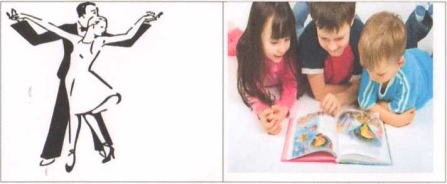 Картка 1
Картка 1

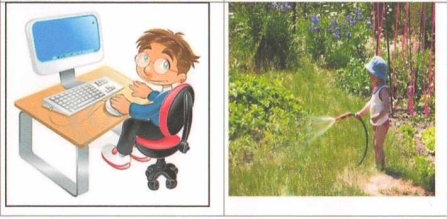
Картка 2
(13 штук різного кольору)

Картка 3
|
TRUE |
FALSE |
Картка 4

|
|
reading |
travelling |
dancing |
playing tennis |
|
Tom |
+ |
- |
- |
+ |
|
Sam |
- |
+ |
+ |
+ |
|
Alison |
+ |
+ |
+ |
- |
|
Jack |
- |
- |
+ |
+ |
Картка 5
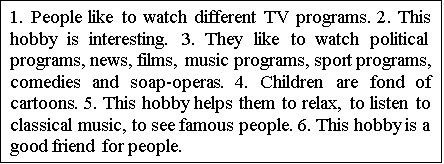

Картка 6


Презентація до уроку
Слайд 1

Слайд 2
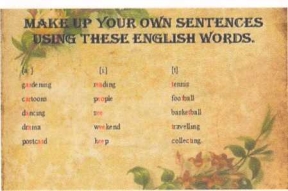
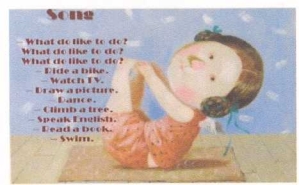 Слайд 3
Слайд 3
Слайд 4
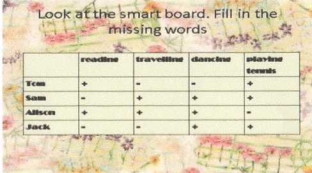
Слайд 5

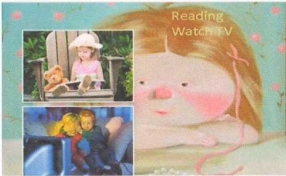 Слайд 6
Слайд 6
Слайд 7
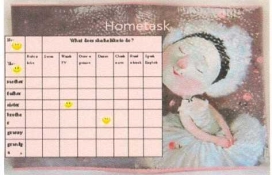
Слайд 8

Додаток 5б
Урок у 6 класі. (II семестр)
Тема. Їжа. Традиційна їжа Великобританії
Topic. Meat. Traditional British Food
Level – A-2 pre – intermediate
Метa: засвоїти нові ЛО з теми; формувати культуру харчування; формувати мовленнєву компетенцію учнів за допомогою пісні як засобу навчання; удосконалювати граматичні навички; вчити вживати нові ЛО з теми у фразовій єдності; розвивати вміння діалогічного мовлення; поглибити знання учнів про традиції Англії; сформулювати уявлення учнів про традиційні англійські страви; розвивати мовну здогадку учнів; розвивати уяву учнів в умовах роботи в парах, групах та індивідуально.
Аіт of the lesson: to adopt new lexical units; to form the meal culture; to form pupils’ linguistic competence with the help of songs as means of teaching; to improve grammar skills; to learn how to use new LU of the topic in a phrase; to develop conversational speech; to expand the pupils’ knowledge about English traditions; to form pupils' imagination about British cuisine; to develop pupils' contextual guess; to develop pupils’ imagination by working in pairs, groups and independently.
Tun уроку: Відпрацювання мовних умінь та мовленнєвих навичок.
Type of the Lesson: Development of conversational skills for using them during listening activities. To improve grammar competence.
Очікувані результати: наприкінці уроку учні вміють складати короткі діалоги на тему: «Традиційна їжа Великобританії», правильно вживають злічувані та незлічувані іменники, вміють працювати в парах та маленьких групах, виконуючи поставлені завдання.
Expected Results: At the end of the lesson pupils know how to make up short dialogues on the topic: «Traditional British Cuisine», use countable and uncountable nouns correctly, able to work in pairs and small groups on the given tasks.
Обладнання уроку:
Комп'ютерна презентація з теми, прислів'я, розмовні фрази, підстановці схеми, фільм для аудіювання «Traditional British food», підстановчі вправи, тематичні ілюстрації.
Equipment оf the Lesson: multimedia presentation on the topic, cards with proverbs, phrases, substitutional schemes, movie for listening skills development «Traditional British Cuisine», substitutional exercises, correspondent pictures.
ПЛАН УРОКУ
І. ОРГАНІЗАЦІЙНИЙ МОМЕНТ
1. Привітання. Пред’явлення теми та мети уроку.
2. Фонетична зарядка. Мовленнєва зарядка.
ІІ. ОСНОВНА ЧАСТИНА УРОКУ
- Мозковий штурм. Граматичні завдання.
2. Актуалізація лексики. Робота в парах та всім класом.
3. Індивідуальні завдання з аудіювання. Передтекстові вправи на аудіювання.
4. Завдання під час аудіювання.
5. Завдання після аудіювання. Робота в групах.
6. Навчання діалогічного спонтанного мовлення. Повторення нових ЛО.
7. Закріплення нових ЛО. Вибіркове розуміння тексту з аудіювання.
ІІІ. ПІДСУМОК
ІV. ДОМАШНС ЗАВДАННЯ
ЛІТЕРАТУРА
PLAN OF ТНЕ LESSON
І. INTRODUCTION
1. Greeting and aim.
2. Warming-up.
ІІ. THE MAIN PARE
- Grammar practice.
- Vocabulary practice.
- Listening. Individual work.
- Listening.
- After-listening practice.
- Dialogic spontaneous speaking.
- Reading. Find the necessary information.
ІІІ. CONLUSION
ІV. HOME ASSIGNMENT
BIBLIOGRAPHY
PROCEDURE
І. INTRODUCTION
1. Greeting and aim.
TEACHER: Dear friends, I am glad to see you again. How are you? I hope everything is all right. What did you have for breakfast?
TEACHER: Well done! And I'm sure, you were very studious in doing your home tasks. Let's check it on!
TEACHER: Today our lesson will be about Traditional British food. We’ll revise different food, we’ll watch a video and we’ll read the text! Let’s start. (slide 1)
- Warming-up.
TEACHER: But to the begin with, let's practice our pronunciation. Repeat this tongue twister after me, put your attention on pronounce of [i:] and [e] and [p]: (slide 2)
Picky people pick Peter Pan Peanut-Butter, 'tis the peanut-butter picky people pick. (Учні контрастують промовляння довгого звука та короткою звука, а також придихового).
ІІ. ТНЕ MAIN PART
- Grammar practice.
TEACHER: Dear friends, let’s refresh our grammar knowledge about countable and uncountable nouns. You’ve got cards; you should split nouns into countable and uncountable ones. (Учні виконують передтекстову вправу до пісні на картках). Картка 1.
TEACHER. Now, let’s sing a song about countable and uncountable food together! (Учні виконують пісню з опорою на текст, звертаючи увагу на граматику), (slide 3) Катка 2
- Vocabulary practice.
TEACHER: Work in pairs, please. What traditional British food do you remember? Discuss it for 2 minutes and tell me your ideas!
TEACHER: Look at the picture! Let’s complete this spider gram with your ideas! (slide 4) Traditional British Food: This is... (Учні згадують вже вивчені ЛО з теми та розвивають мовленнєву здогадку)
- Listening. Indidual work.
TEACHER: Have a look at the board. There are some words for you. Listen and repeat! Well done! Now let’s see how well you remember these words! Find the words in the square! (slide 5)
|
T |
Y |
P |
S |
J |
B |
A |
C |
|
O |
S |
A |
U |
S |
A |
G |
E |
|
M |
A |
S |
F |
P |
C |
M |
R |
|
A |
M |
T |
I |
R |
O |
I |
E |
|
I |
O |
A |
S |
T |
N |
L |
A |
|
O |
N |
I |
H |
E |
G |
K |
L |
|
C |
H |
I |
P |
S |
G |
A |
Y |
|
P |
I |
Z |
Z |
A |
M |
G |
L |
(Введення нових ЛО із тексту, що слухатиметься: Tomato, sausage, pasta, fish, bacon, chips, pizza, egg, milk, cereal).
TEACHER: Do you know much about British food? What facts do you know? In several minutes we’ll watch the film about British food but before we do I'd like you to answer the following questions.
- What do milkmen do?
2. Do British people often eat bacon and egg for breakfast?
3. When do British people usually have lunch?
4. When do they usually have their evening meal?
5. Does London have a lot of foreign restaurants? From how many different countries?
6. Do British people really eat a lot of fish and chips? (slide 6)
4. Listening.
TEACHER: Watch the video and find the answers to these questions! (Загальне сприйняття тексту. Учні знаходять лише вибіркову інформацію).
(slide 7)
TEACHER: Sequence 1 Now watch the first episode and fill in the tables. What do these people have for breakfast'?
TEACHER: Sequence 2 Now please watch the second episode without the sound and tick the places you see. Where do people eat in Britain?
Now watch with the sound and complete the sentences!
TEACHER: Sequence 3 Well done! Now you’ll watch the next part and tick the restaurants you see while you watch!
TEACHER: Sequence 4 Watch the last episode and match the pictures with the speech bubbles!
TEACHER: Sequence 5 Watch the film till the end and answer the questions:
- How much do the fish and chips cost?
2. How many servings of fish and chips do British people have a year?
3. What’s the woman's favourite food?
5. After-listening practice.
(Детальне розуміння тексту. Учні знаходять більш точну інформацію).
TEACHER: The girl in the video asked what food do you like! Let’s answer her question! Now take the sheets of paper and write 3 questions to ask your classmates about their favourite food! Work in groups of 3. Start your questions like this: (slide 8)
What food do you ...?
What’s your favourite...?
What do you usually have for...?
Now tell us about each member of the group! (he/she likes..., his/her favourite food is..., he/she usually has ... for...).
Write down your friends answers so we could have the favourite food survey. What is the most popular food?
Кожна група по черзі зачитає результати своєї співпраці.
- Dialogic spontaneous speaking.
TEACHER: Let’s see how well have you understand the new words. Listen to the text, and then you’ll make some test's task:
My English Breakfast
Hello, our names are Katharina and Niklas Kohlheim. We are 8 and 10 years old.
What do we usually have for breakfast? Well, we usually eat bread and butter, jam or marmalade, and cheese, eggs, bacon or salami. We usually drink tea with milk, or sometimes fruit tea. At weekends we have a glass of milk. Our parents like white coffee (that's coffee with milk). We also drink juice; orange juice is the best. Katharina prefers bread and butter, with strawberry jam, and I like bread and cheese and boiled eggs. What is your favourite breakfast? (slide 9)
7. Reading. Find the necessary information.
TEACHER: Mark sentences as true or false.
- Katherine is 10 years old.
- They usually drink coffee for breakfast.
- At weekends they have a glass of milk.
- White coffee is coffee with milk.
- Katherine prefers bread and cheese.
- Niklas likes boiled egg.
III. CONLUSION
TEACHER: So, well done! Did you like the lesson? After such work you may be English spies! To be better in English do your home assignments! Open your day-books!
IV. HOME ASSIGNNMENT
What British food do you remember? At home you’ll write a composition My Family Breakfast. Thank you for your work!
TEACHER: Dear pupils, you were hard-working today and get such marks: (називаю прізвища та оцінки)
TEACHER: Thank you! Enjoy your English-learning! Goodbye!
BIBLIOGRAPHY
1. Методика викладання іноземних мов у середніх навчальних закладах: Підручник, Під керівн. С.К.Ніколаєвої. К.: Ленвіт. 2002.
2. Настільна книга педагога. Посібник для тих, хто хоче бути вчителем майстром / упорядники: Андрєєва В.М., Григораш В.В. – X.: Вид. група «Основа», 2009.
3. 100 цікавих ідей для проведення уроку. – X.: Вид. група «Основа», 2012.
4. О. Karpiuk Welcome to English Study, 6 клас: підручник для 6 класу шкіл з поглибленим вивченням англійської мови, ліцеїв, гімназій, коледжів / О.Д.Карпʼюк. – Тернопіль: Видавництво Карп’юка, 2008.
Роздатковий матеріал до уроку
Картка 1
Song about food
|
Some things you can count. |
bread. |
|
Some things you can't. |
You can count all of these. |
|
I love food, I love to eat. |
I love food, 1 love to eat |
|
My favorite food is usually sweet. |
My favourite food is usually sweet. |
|
Some things you can count, |
Some things you can count, |
|
Some things you can’t. |
Some things you canʼt. |
|
But it's all delicious to my! |
But it's all delicious to my! |
|
Pizza, Ice-cream, water and juice. |
Maple syrup and coffee, |
|
Milk and yoghurt. |
Cereal and orange juice, |
|
Cheese and fruit. |
Butter, meat and jam. |
|
Rice and cola. |
You can’t count all of these. |
|
Pasta, cake, and soup. |
|
|
You can't count all of these. |
I love food, I love to eat. |
|
|
My favorite food is usually sweet.
|
|
I love food. 1I love to eat. |
Some things you can count, |
|
My favorite food is usually sweet. |
Some things you canʼt. |
|
Some things you can count, |
But itʼs all delicious to my! |
|
Some things you can't. |
Some eggs, pastry and a sandwich, |
|
But it's all delicious to my! |
A cookie,a banana and an apple, |
|
An apple and an orange, |
Some tomatoes, two burgers and hot dog. |
|
Four sweets, a banana and three eggs, |
You can count all of these. |
|
Two sausages, a carrot and a loaf of |
|
Картка 2
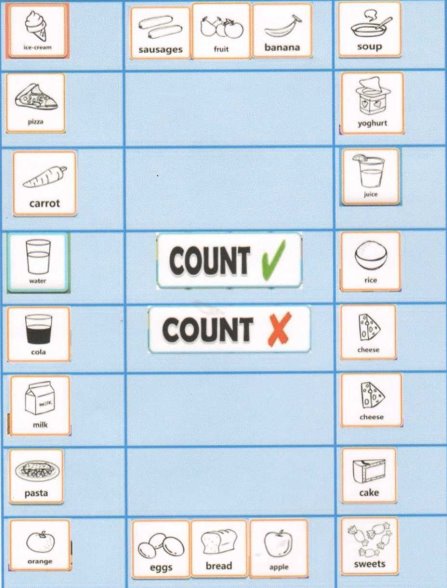
Презентація до уроку
Слайд 1

Слайд 2

Слайд 3
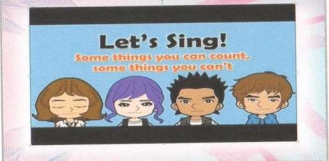
Слайд 4

Слайд 5

Слайд 6
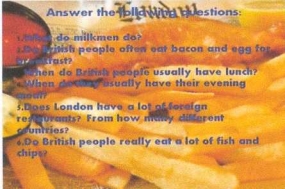
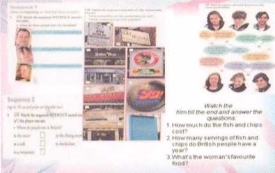 Слайд 7
Слайд 7
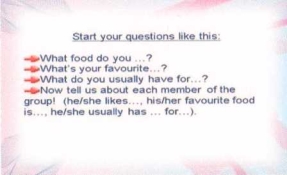 Слайд 8
Слайд 8
Слайд 9

Додаток 5в
Урок у 8 класі (І семестр)
Тема. Особистість. Музика та особистість
Topic. Personality. Music and personality
Level – B1 intermediate
Мета: розширювати лексичний запас з даної теми; розвивати мовну здогадку; розвивати здатність до порівняння і зіставлення отриманих знань, уміння їх застосовувати; формувати лексичну та мовленнєву компетенцію за допомогою пісенного матеріалу; виховувати почуття прекрасного, почуття поваги до інших людей і до себе, як талановитої особистості.
Aim of the Lesson: to improve vocabulary of the given topic; to develop the contextual guess; to develop comparison and collation skills, know how to use them; to form linguistic competence with the help of songs; to bring up sense of beauty, respect to other people .
Тип уроку: урок розвитку мовленнєвої компетенції, застосування знань, навичок і вмінь.
Type of the Lesson: lesson of conversational competence development, using of knowledges and skills.
Обладнання: комп’ютер, проектор, екран, роздаткові матеріали з різними видами завдань, картинки для індивідуальної роботи, тематичні картинки.
Equipment of the Lesson: multimedia: PC, projector, screen, handout materials with different tasks, cards for independent work, correspondent pictures.
Очікувані результати: наприкінці уроку учні повинні правильно вживати лексичні одиниці з даної теми; вирізняти потрібну інформацію при аудіюванні з даної теми; спілкуватися у межах обраної тематики та основі прослуханого тексту; чітко та обґрунтовано висловлювати свою думку.
Expected Results: At the end of the lesson pupils should use LU of the given vocabulary' correctly; find proper information while listening texts of the given topic; to communicate on the proposed situation based on the text heard; speak their own opinion clearly and intelligibly.
ПЛАН УРОКУ
І. ОРГАНІЗІЦІЙНИЙ МОМЕНТ
1. Привітання. Предʼявлення теми та мети уроку.
2. Фонетична зарядка. Мовленнєва зарядка.
II. ОСНОВНА ЧАСТИНА УРОКУ
![]() 1. Мозковий штурм. Мовленнєва підготовка в режимі Т PI Р2 РЗ і т.д. Побудова асоціативного ланцюжка; «Music is...».
1. Мозковий штурм. Мовленнєва підготовка в режимі Т PI Р2 РЗ і т.д. Побудова асоціативного ланцюжка; «Music is...».
2. Закріплення ЛО з теми: «Music».
3. Розвиток навичок аудіювання з узагальненим розумінням прослуханого і виділенням необхідної інформації.
4. Розвиток навичок говоріння на основі прослуханого.
ІІІ. ПІДСУМОК
IV. ДОМАШНЄ ЗАВДАННЯ
ЛІТЕРАТУРА
PLAN OF THE LESSON
І. INTRODUCTION
1. Greeting and aim.
2. Warming-up.
ІІ. THE MAIN PART
- Vocabulary activation.
- Vocabulary practice.
- Listening. Find the necessary information.
- Speaking.
ІІІ. CONCLUSION
ІV. HOME ASSIGNMENT
BIBLIOGRAPHY
PROCEDURE
I. INTRODUCTION
1. Greeting and aim.
T. Hello, boys and girls. I hope everybody is fine today. Donʼt get nervous, be energetic and optimistic. I see your happy, smiling faces and it makes me feel happy too. What about you? What can make you feel happy? Look at the screen. Finish the sentence: Iʼm happy when... (Учні вигадують власне продовження даного речення). Слайд 1
2. Warming-up.
Т. Thank you for your ideas. As you can see, different things can make us feel happy, for some of us itʼs our family and friends. For the others, it’s good marks at school or a fine weather. Still, Iʼm sure everybody will agree with me that music is the universal language of the world. Music appeals to our heart. It reflects our mood add emotions. Music helps us not only to be happy but to understand each other, appreciate such feelings as love, friendship, sympathy and just our life in general. It’s the universal language for people of different ages, generations, professions and even different social background .So, let's devote our lesson to music. Слайд 2
II. THE MAIN PART
- Vocabulary activation.
T. What about you? Can you think of a single day without music? What part does music play in your life? What does it mean for you? Letʼs complete a word-web. Music is… I want you to make some notes and somebody will sum everything up. (Учні висловлюють свої ідеї та роблять записи). Слайд 3
Now letʼs sum everything up: what music means for the students of our group. (Один з учнів узагальнює всі висловлювання).
Т. Thanks. I see music is really an essential part of your life.
2. Vocabulary practice.
T. Your classmates have prepared a musical trip for you. They called it «Thank you for the music». I hope you will enjoy it. Open your hearts to marvelous music. Girls, you are welcome.
P1. It is generally known that there are different musical genres: pop, rock, country, rap...Somebody prefers classical music, the others canʼt live a single day without jazz. As the proverb says «Tastes differ». Слайд 4
P2. So, there are a lot of adjectives describing music. Have a look at the screen and try to match English and Ukrainian adjectives. You’ve got 30 seconds. Work with your partners. (Учні працюють в парах, поєднуючи англійські прикметники з їхніми українськими еквівалентами).
Now let’s check. Read your variants and check using the screen.
T. Take these cards home and write down the words which you donʼt know and try to learn them creating your own sentences. That will be your homework.
P1. Letʼs enjoy some music. Now we offer you to listen to some musical extracts and describe them using these adjectives and your own words. What feelings does this music evoke in your hearts? (Звучать різні за жанром уривки музичних творів, учні характеризують їх, використовуючи дані прикметники, а також використовуючи власні ідеї).
As you see, different music styles evoke different feelings.
T. Thank you, girls. We continue our trip on the waves of music!
3. Listening. Find the necessary information.
T. Have you ever heard about the group ABBA? It was extremely popular in the eightieth. What do the letters ABBA stand for? (Учні роблять свої припущення та висловлюють їх).
The girls have prepared some information about the history of this band and their musical style.
Listen to the story, look at the screen and be ready to answer the questions. They are given on the cards. Read them for yourselves. Слайд 5-11
(Учні слухають коротку розповідь про групу ABBA, дивляться презентацію, та відповідають на запитання на картках). Картка 1.
Т. Now letʼs watch a video and listen to one of the most famous song «Thank you for the music». Listen and say what this song is about. Video 1.
(Учні слухають пісню, та дивляться відеокліп).
Т. Have you ever heard this song before? I hope, youʼve enjoyed it. As for me, I like it a lot. So, what is it about? (Учні дають свої варіанти відповідей).
Т. We have the lyrics of the song for you. Listen to it once again and fill in the gaps. (Учні слухають пісню вдруге, заповнюючи пропущені слова на картках). Картка 2.
Т. Letʼs check what you have. Now compare your card with your partner's one because different words are omitted in different cards.
Keywords:
1. special
2. bore
3. have a talent
4. loud
5. music
6. a song
7. a dancer
8. a melody
9. lucky
10. sing
Read what you have. Слайд 12
(Учні порівнюють відповіді один з одним та з текстом на екрані).
4. Speaking.
T. Have you got any questions about the translation? Now let me ask you some questions the contests of this song.
1) Why does the girl (the main hero of the song) consider herself a bit of a bore/rather boring?
2) What talent does she have?
3) What does her mother say about her childhood?
4) The girl says that a melody can capture our hearts. What else, in your opinion, can capture our hearts like a melody?(friendship, love , poetry etc)
5) Why does she suppose herself to be so lucky?
6) Has every person got a talent / a gift which is given to him/her by his/her birth?
7) Can we develop our abilities/ talents by our own efforts? What should we do to develop our talents?
Ш. CONCLUSION
T. So, letʼs draw a conclusion.
Everyone is talented in this or that kind. We should do our best to achieve good results and to develop our talents. Everyone is special, everyone is unique in this multicultural world. And music helps us reveal our identity. Never give up – never give in. Donʼt forget, all of you are talented. So, letʼs sing this song along with the famous ABBA. (Учні співають пісню, з порою на текст разом з відеокліпом).
Thank you for singing. Iʼm sure you've enjoyed our trip. Don’t forget about homework.
ІV. HOME ASSIGNMENT
T. Summing everything up. Iʼd like to offer you to make up a cinquain about music. We’ve already done this kind of work. Look at the screen. Here is a scheme of it. (Учні складають вдома сенкани) Слайд 13
Music
Captivating, charming
Listen, sing, live
Music is everything
Our life.
T. Remember, music is magic! Itʼs an ever-lasting source of inspiration. Let music always be with you as the universal language of the world.
BIBLIOGRAPHY
- Методика викладання іноземних мов у середніх навчальних закладах: Підручник. Під керівн. С.Ю.Ніколаєвої. – К.: Ленвіт, 2002.
2. Настільна книга педагога. Посібник для тих, хто хоче бути вчителем майстром / упорядники: Андреєва В.М., Григораш В.В. – X.: Вид. група «Основа», 2009.
3. 100 цікавих ідей для проведення уроку. – Х.: Вид. група «Основа», 2012.
4. Solutions. Intermidiat Studentʼs. Tim Filla, Paul A Davies. – Oxford University Perss, 2014.
Роздатковий матеріал до уроку
Картка 1
Questions about ABBA:
- Where was ABBA from?
- They became one of the most commercially successful acts in the history of popular music? – Didn’t they?
- How many records did ABBA sell?
4. What made them the fourth popular group?
5. How many members were there in the group? Tell us their names!
6. What was the second worldwide hit from Arrival?
7. When did the members of ABBA take a break from the group?
Картка 2
Listen to the song and complete it with necessary words:
Thank you for the music
Iʼm nothing 1____, in fact Iʼm a bit of a 2____,
If I tell a joke, youʼve probably heard it before
But I 3___, a wonderful thing
'Cause everyone listens when I start to sing
I'm so grateful and proud
All I want is to sing it out 4 ____
chorus: So I say
Thank you for the 5___, the songs Iʼm singing
Thanks for all the joy they’re bringing
Who can live without it, I ask in all honesty
What would life be?
Without 6____or a dance what are we?
So I say thank you for the music
For giving it to me
Mother says I was 7 ____before I could walk
She says I began to sing long before I could talk
And Iʼve often wondered, how did it all start?
Who found out that nothing can capture a heart
Like 8_____can?
Well, whoever it was, I’m a fan
chorus
Iʼve been so 9____, I am the girl with golden hair
I wanna 10____it out to everybody
What a joy, what a life, what a chance!
chorus ______________________________
Special, bore, have a talent, loud, music, a song, a dancer, a melody, lucky, sing.
Презентація до уроку
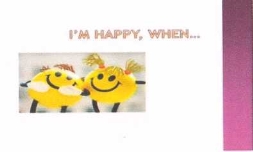 Слайд 1
Слайд 1
Слайд 2

Слайд 3
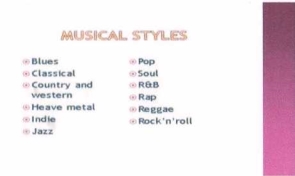
Слайд 4

Слайд 5

Слайд 6

Слайд 7
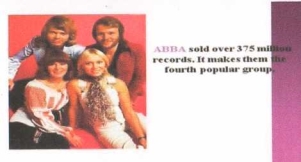
Слайд 8
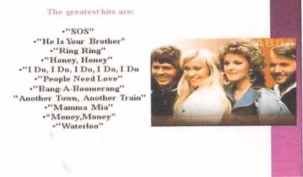
Слайд 9



Слайд 10

Слайд 11
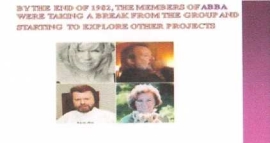
Слайд 12
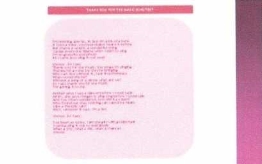
1
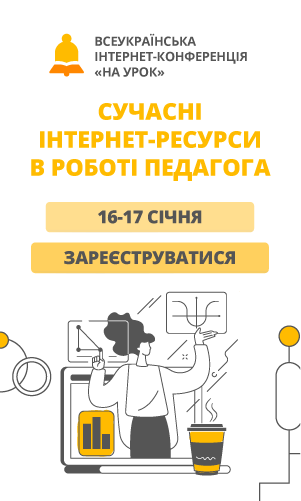

про публікацію авторської розробки
Додати розробку
